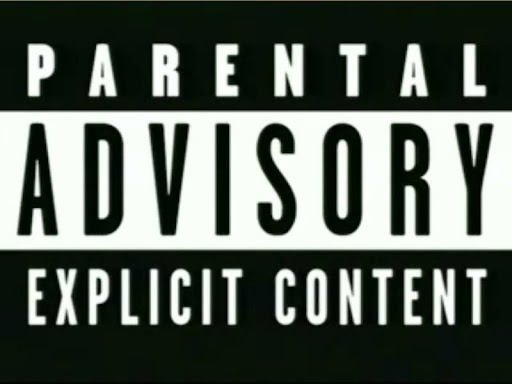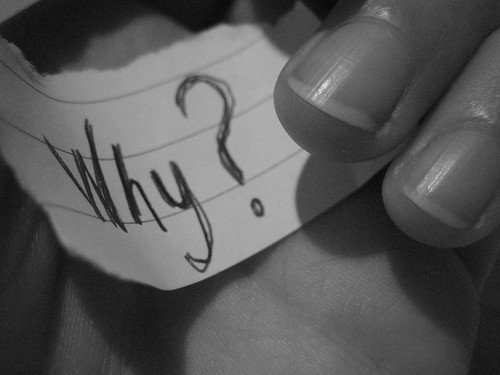“You don't develop courage by being happy in your relationships everyday. You develop it by surviving difficult times and challenging adversity.”
~Epicurus
The other day I went to Starbucks before my clinic. The cashier asks

me for my order and shouts it out to the person at the espresso bar. I said hello to the person behind me and walked to the pick up counter. My drink comes up. I thanked the barrister and went to the condiment bar. I smiled at another patron as we put cream and sugar in our caffeinated beverages. Walking to my car, I waved to the person in the car that let me cross the street. Then I was off to clinic. During this time, I counted no less than five interactions with people. For the most part, the day to day interactions with people on the street or in a store do not cause much of a problem. Knowingly or not, we all make quick judgments about people without consciously realizing it. It is human nature.
For the most part, physicians and nurses are well intentioned people. Everyday physicians and surgeons have multiple patient encounters. Just like the patrons of Starbucks or the people we may pass on the street, patients pass judgments on the physician based on a number of factors. Many of the factors used in making the prejudgment are out of the physicians control. Like patients, physicians also prejudge the patients. For the majority of encounters, there are no problems. Patients are either happy or indifferent, and we all go about our day. On other occasions, there are the interactions that don't go as we planned. Because of the volume of encounters physicians have, eventually there will be a bad interaction that cause a patient to fire the physician, or seek second opinions.

The other day one of my residents had a patient fire him. Understandably, he was quite upset. I heard his side of the story and witness' accounts of the interaction. To me, it sounds like the good intentions the resident perceived wrong and the questions of the patients were seen as hostile. I don't think that either party involved intended for this to be the case, but it is what it is. It brought up the topic of how do you deal with these situations. Anyone who has seen patients has had a bad patient encounter. There will be patients who will not be happy with what you say or the way you say it. People will go for second opinions. They will choose another doctor over you. It happens. It is a fact of life. How do we/you deal with it?

When doing an
After Action Review (AAR) of the situation, the first step is not to take it personal. Of course, that is easier said than done. Don't blame yourself or the patient and above all, don't "blow off" the incident. Second, you must look at what role you played in making this a bad encounter. You must look at yourself critically and be brutally honest with yourself. Remember, for every bad encounter you have, there is only one common thread, you. Finally, you must look at what changes you can make to prevent a similar situation from happening. It seems like a lot to do, but it isn't. This is a simple exercise to improve your
self-awareness. You must be self-aware and/or

you must have people around you who will honestly tell you about yourself. This is not a time to have a "yes" man. Although a bad encounter is emotionally distressing and self-deflating, it provides the opportunity for the most growth as a clinician.
When I look at my personal experience and observation of others, the common flaw is communication. In the past, physicians were

presumed to learn their "soft" communication skills at patients' bedsides, in their rounds as residents, and as students observing master clinicians and their interactions with patients. Today, the communication and interpersonal skills of the physician-in-training are no longer seen as immutable personal styles that emerge during residency but, instead, as a set of measurable and modifiable behaviors that can evolve. During the typical 15- or 20-minute patient-physician encounter, the physician makes immeasurable choices regarding the words, questions, silences, tones, and facial expressions he or she chooses. These choices either enhance or detract from the patient's perception of the physician's clinical skill. From obtaining the patient's medical history to conveying a treatment plan, the physician's relationship with his patient is built his/her ability to communicate. In these encounters, both verbal and nonverbal forms of communication constitute this essential feature of clinical practice.
What are some tips at improving the effectiveness of our communication?
1. Assess what the patient already knows
Before providing information, find out what a patient already knows about his or her condition. It is important to determine what a patient already understands, or misunderstands, at the outset.
2. Assess what the patient wants to know
Not all patients with the same diagnosis want the same level of detail in the information offered about their condition or treatment. Physicians should assess whether the patient desires, or will be able to comprehend, additional information. For the physician without advance knowledge of the patient, this level of need will emerge by degrees as the discussion unfolds and as the physician attempts to synthesize and present information in a clear and understandable manner.
One telling sign of whether the patient is understanding the information is the nature of the questions patients ask; if questions reflect comprehension of the information just presented, a further level of detail may be warranted. If questions reflect confusion, it is advisable that the physician return to basic information. If the patient has no questions or is obviously uncomfortable, this is a good opportunity for the physician to stop the discussion, ask explicitly how much information the patient desires, and adjust accordingly. Continuing to provide further information is not always the best approach.
3. Be empathetic
Empathy is a basic skill physicians should develop to help them recognize the indirectly expressed emotions of their patients. Once recognized, these emotions need to be acknowledged and further explored during the patient-physician encounter. Further, physicians should not ignore or minimize patient feelings with a redirected line of inquiry relentlessly focused on "real" symptoms. Patient satisfaction is likely to be enhanced by physicians who acknowledge patients' expressed emotions. Physicians who do this are less likely to be viewed as uncaring by their patients.
4. Slow down
Physicians who provide information in a slow and deliberate fashion allow the time needed for patients to comprehend the new information. Other techniques physicians can use to allow time include pausing frequently and reinforcing silence with appropriate body language. A slow delivery with appropriate pauses also gives the listener time to formulate questions, which the physician can then use to provide further bits of targeted information. Thus, a dialogue punctuated with pauses leads to deeper comprehension on both sides.
In situations involving the delivery of bad news, the technique of simply stating the news and pausing can be particularly helpful in ensuring that the patient and patient's family fully receive and understand the information. Allowing this time for silence, tears, and questions can be essential.
5. Tell the truth
It is important to be truthful. In addition, it is important that physicians not minimize the impact of what they are saying.
6. Keep it simple
Physicians should avoid engaging in long monologues in front of the patient. Far better for the physician to keep to short statements and clear, simple explanations. Those who tailor information to the patient's desired level of information will improve comprehension and limit emotional distress. It is wise for the physician to avoid the use of jargon whenever possible.
7. Be hopeful
Although the need for truth-telling remains primary, the therapeutic value of conveying hope in situations that may appear hopeless should not be underestimated. Particularly in the context of terminal illness and end-of-life care, hope should not be discouraged.
8. Watch the patient's body and face
Much of what is conveyed between a physician and patient in a clinical encounter occurs through nonverbal communication. For both physician and patient, images of body language and facial expressions will likely be remembered longer after the encounter than any memory of spoken words. It is also important to recognize that the patient-physician encounter involves a two-way exchange of nonverbal information. Patients' facial expressions are often good indicators of sadness, worry, or anxiety. The physician who responds with appropriate concern to these nonverbal cues will likely impact the patient's illness to a greater degree than the physician wanting to strictly convey factual information. At the very least, the attentive physician will have a more satisfied patient.
On the other hand, the physician's body language and facial expression also speak volumes to the patient. The physician who hurriedly enters the examination room several minutes late, takes furious notes, and turns away while the patient is talking, almost certainly conveys impatience and minimal interest in the patient. Over several such encounters, the patient may interpret such nonverbal behavior as a message that his or her visit is unimportant, despite any spoken assurances to the contrary. Thus, it is imperative that the physician be aware of his or her own implicit messages, as well as recognizing the nonverbal cues of the patient.
9. Be Prepared for a Reaction
Patients vary, not only in their willingness and ability to absorb information, but in their reactions to physician communications. Most physicians quickly develop a sense for the various coping styles of patients, a range of human reactions that has been categorized in several specific clinical settings. Patient responses may range from no response, to blaming the physician and medical team. There may be a display of emotion that rages from the mild depression and anxiety to the extremes of emotions with displays of crying, denial, or anger
In responding to any of these patient reactions, it is important to be prepared. The first step is for the physician to recognize the response, allowing sufficient time for a full display of emotions. Most importantly, the physician simply needs to listen quietly and attentively to what the patient or family are saying. It is extremely important to acknowledge their feelings and emotions. The physician's body language can be crucial in conveying empathic concern in these encounters.

When does the communication break down? Some of the pitfalls in the patient physician dialog are:
- Using technical language or jargon,
- Not showing appropriate concern for problems voiced by the patient
- Not pausing to listen to the patient
- Not verifying that the patient has understood the information presented
- Using an impersonal approach or display any degree of apathy in communications
- Not becoming sufficiently available to the patient

In the end, the patient-physician dialogue is not finished after discussing a diagnosis, tests results, or proposed treatments. For the patient, this is just a beginning. As a surgical sub-specialist, we are not typically the most effective communicators. It is not uncommon for the surgical sub-specialist to be seen as an uncaring technician. In today's ever changing medical world, we need to be better. With internet access to information, patients are becoming more educated consumers. Many patients are not acutely aware of a physician's technical skills, but they do know how a physician makes them feel. Regardless of how technically skilled you are, it is you communication skills that will be remembered.
People in the service industries understand the importance of the initial consumer perceptions. At Starbucks, the young cashier greets you with a smile. Takes your order, asks if you would like anything else, gives you your change, and tells you to have a nice day. We expect this as a consumer. The medical field is a service industry and patients the consumers. Should they expect anything less?
“I've learned that people will forget what you said, people will forget what you did, but people will never forget how you made them feel.”
~Maya Angelou





































